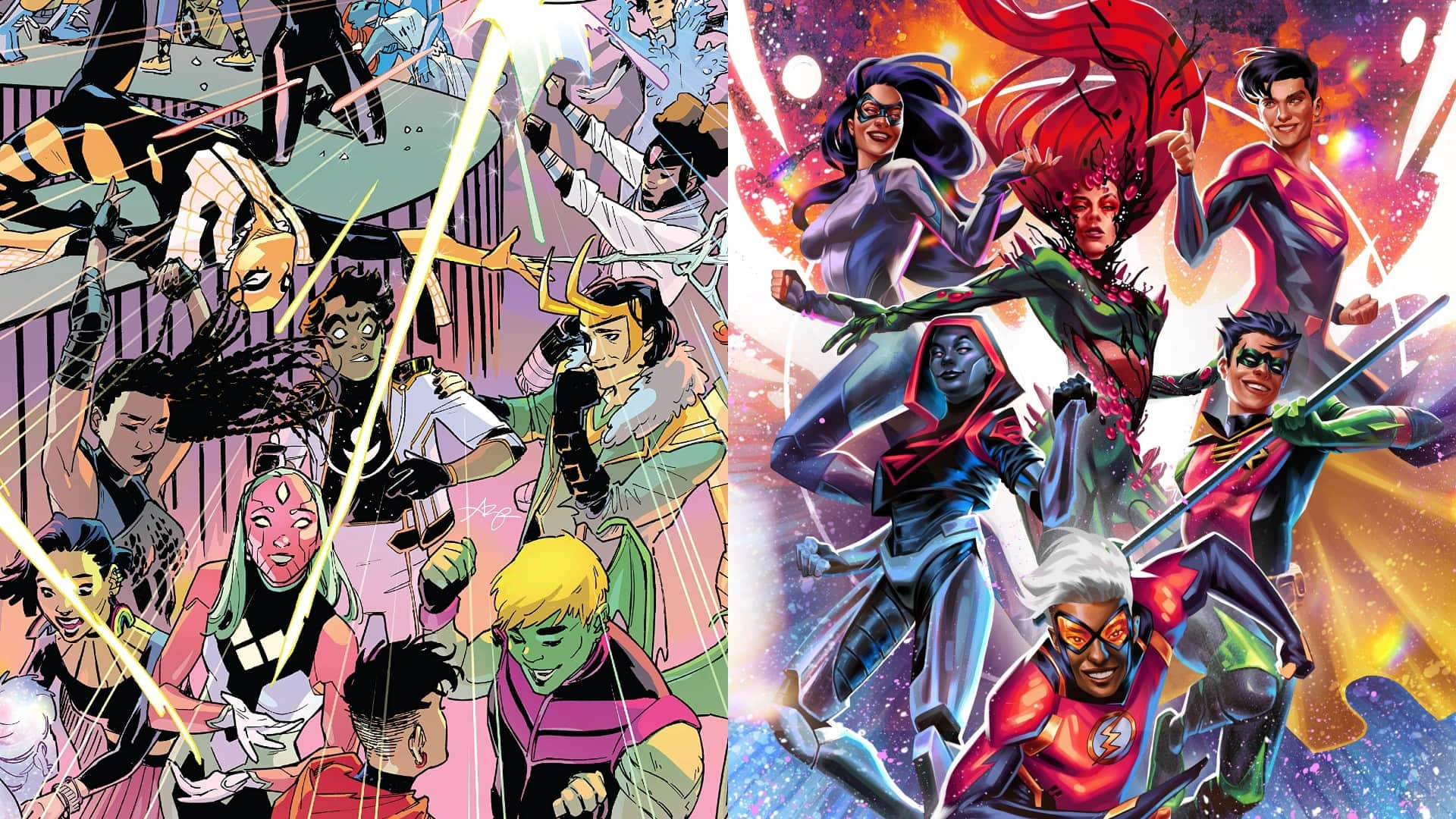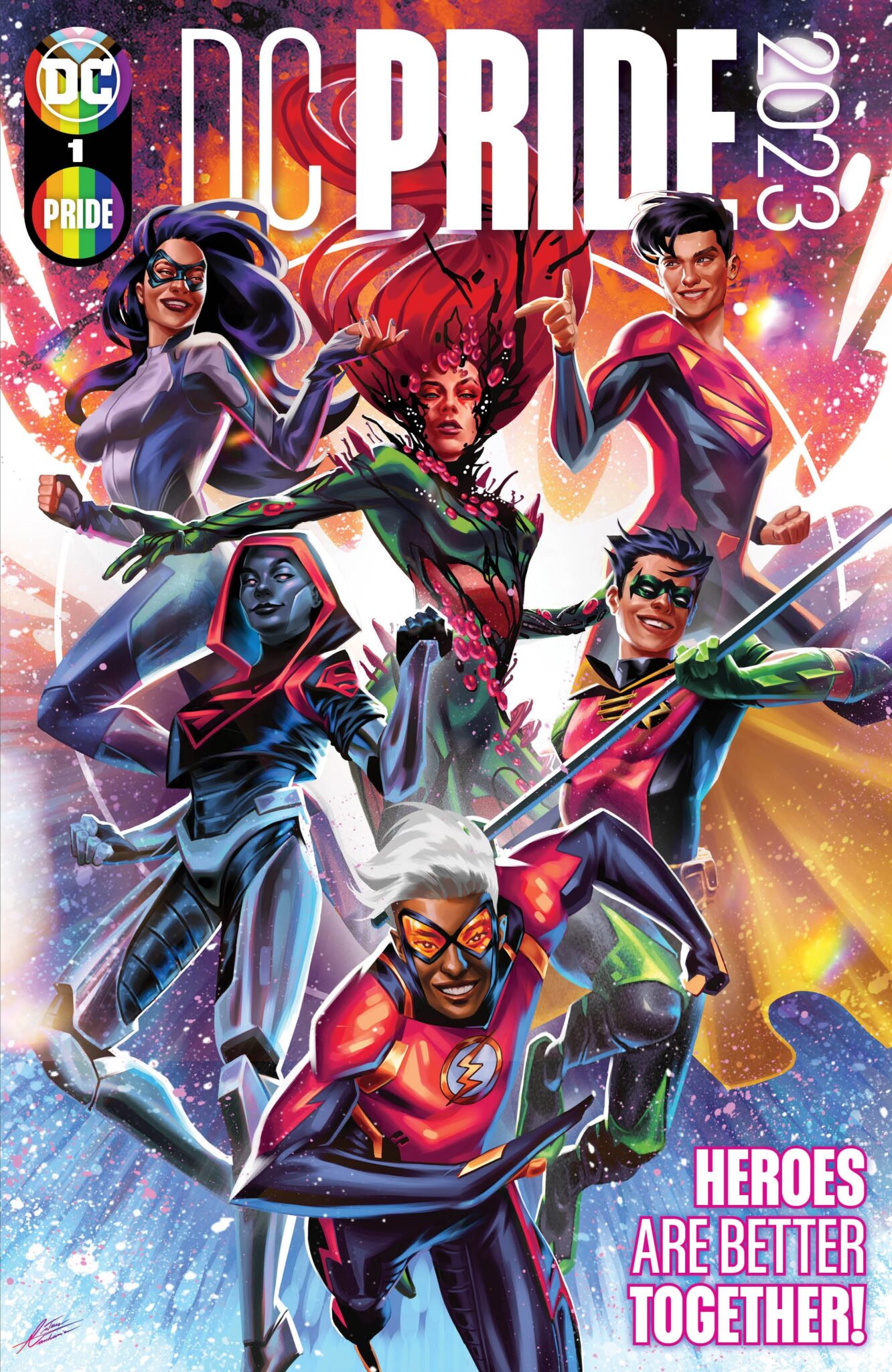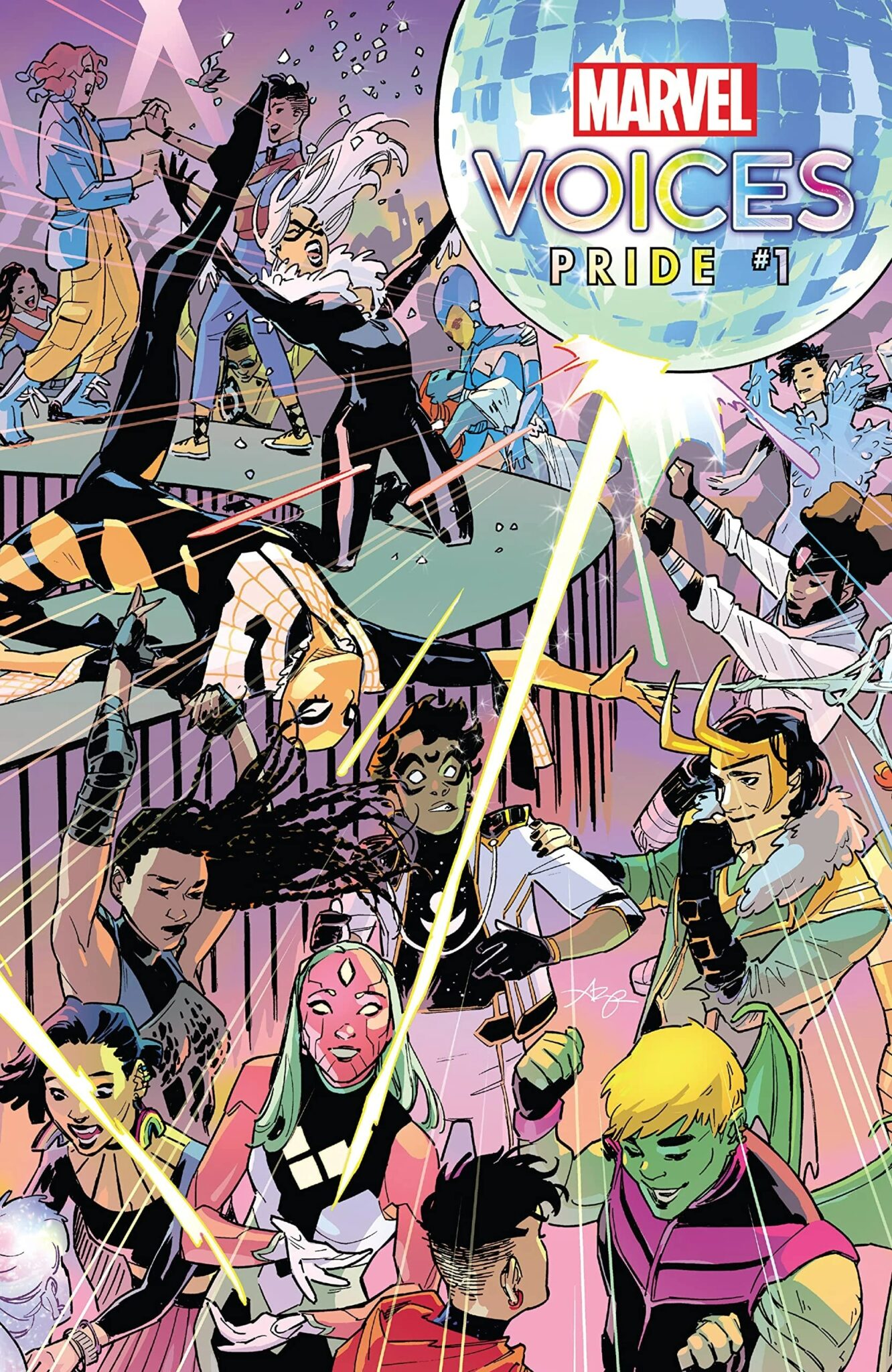
Comics Corner – Are Pride Anthologies Enough?
In years gone by, Comics Corner has celebrated the Pride anthologies published by the Big Two of American comics publishers, Marvel and DC. Super-sized collections of stories featuring both companies’ LGBTQ+ characters are now a regular fixture of Pride month, shining a spotlight on heroes – and sometimes villains – who give visibility to queer identities across the community.
However, with Marvel Voices: Pride and DC Pride now in their third year, is an annual collection of short stories enough, or do we need to see more follow-through, given the frequent absence of those characters outside of these anthologies? In short, have these yearly showcases already become little more than lip service?
First off, it’s essential to establish that the most important aspect of these anthologies isn’t the queer characters featured in them, valuable as they are for representation, but rather the real-life LGBTQ+ creators involved in their creation. Marvel and DC’s Pride books live on the talents of the writers and artists who fill their pages, with some making their Big Two debuts in the annuals. That visibility for real LGBTQ+ people is always worth celebrating.

However, all too often, the characters that are showcased in the yearly Pride books are then sidelined again until the next year. Perhaps the worst example of this at DC is Jess Chambers, a non-binary version of speedster The Flash from an alternate Earth in DC’s multiverse. The character first appeared as a teenage hero called Kid Quick in a non-Pride anthology, DC’s Very Merry Multiverse, before getting a spotlight story in DC Pride 2021. However, that latter story featured an alternate, adult Jess from yet another branch of continuity, and there’s since been a third version introduced. Between all three iterations of the character, there has been a meagre total of thirteen appearances. Six of those were the younger incarnation, sharing spotlight in the out-of-continuity mini-series Multiversity: Teen Justice, which followed a gender-flipped version of the Teen Titans. For all intents and purposes, Jess Chambers has become a token character, rolled out for rainbow kudos.
Marvel has been arguably better, using its own Pride showcases to introduce some characters who have gone on to grander roles, notably gay dream-warper Somnus and trans power-swapper Escapade, both of whom have become prominent in X-Men titles. Yet even at the House of Ideas, too many characters have been dropped into Pride books only to be largely ignored afterwards. 2022’s Marvel Voices: Pride introduced an entire team of young trans mutants, none of whom have appeared in print since (a story arc in the digital X-Men Unlimited series has featured the characters, but its events have had no wider reference).
Similarly, this year’s Marvel Voices: Pride risks repeating that after-the-fact omission with two character debuts. ‘What May Bloom’ introduces Logan Lewis, a legacy hero with ties to former Captain America villain Nightshade. Yet while she’s described as “a bisexual young woman in a sapphic relationship”, the only acknowledgement of this on the page is a blink-and-miss-it kiss on her presumable girlfriend’s forehead. Elsewhere, ‘No Trespassing; Beware of Dog’ brings in Muzzle, a trans man with symbiote powers (think Venom or Carnage), whose queer identity is at least prominent in the story. However, although writer and co-creator Stephanie Williams has grander plans for Nightshade, at time of writing nothing has been solicited indicating future appearances for Logan, and there’s no sign of Muzzle reappearing either.
[Clarification, 8th August: a story arc focusing on the new Logan Lewis incarnation of Nightshade was announced for Marvel’s digital ‘Marvel Voices’ series at San Diego Comic Con 2023, written by Williams and with art by Héctor Barros and Andrew Dalhouse. The arc starts in Marvel Voices: Nightshade #71. However, at time of writing, this has not been solicited beyond “Fall 2023”, and no announcement has been made regarding a physical print release. We are happy to correct the oversight.]

It’s not just that such lack of commitment to showcase LGBTQ+ characters outside of the anthologies that is a problem though. Again, it all comes back to the creators involved, and the sad reality is that the showcase in the Pride books isn’t necessarily being met with continued work opportunities afterwards. While audience reception and the cold business calculations of sales projections will undeniably factor in here, there’s some evidence that creators aren’t being given the opportunity to continue to develop these characters beyond the eight pages they warrant in an anthology.
Back in June 2023, the hashtag #ComicsBrokeMe swept social media, with creators discussing their poor experiences working in the comics industry. Amongst many sobering discussions, writer Andrew Wheeler – who, with artists Luciano Vecchio and Rex Lokus, introduced Justice League Queer in DC Pride 2021 – wrote “[Comics Broke Me] so many times, but the relevant one right now is how DC editorial pushed me to pitch JLQ and then blackballed me when they decided JLQ was bad publicity. They call it pride. I call it exploitation.”
Indeed, the JLQ has had just two appearances since their inception, one in a winter holiday anthology, and another as background figures in an Apollo and Midnighter story in this year’s Pride anthology. Considering that excitement at the mere idea of the team was enough to see it brought to life after it was first floated as a contender in DC’s ‘Round Robin’ elimination tournament, and their few appearances have been warmly received by readers hoping to see more, that’s pretty poor treatment of the creators involved.
Still, there is some cause for hope. DC is giving new nonbinary hero Xanthe Zhou a fair amount of spotlight, with both Pride appearances and a leading role in the current Spirit World miniseries, while October 2023 sees the launch of Alan Scott: The Green Lantern, which will feature the recently-outed original Green Lantern and explore how he balanced superhero celebrity with being a closeted gay man in the 1940s. Marvel, for its part, has gay X-Man Iceman getting his own comic again, while married kings of space Hulkling and Wiccan are set to appear in the pages of Guardians of the Galaxy from October.
These are good steps, but LGBTQ+ readers and creators alike deserve more than siloed off Very Special Episodes once a year. Pride anthologies are great – but they’re not enough.





